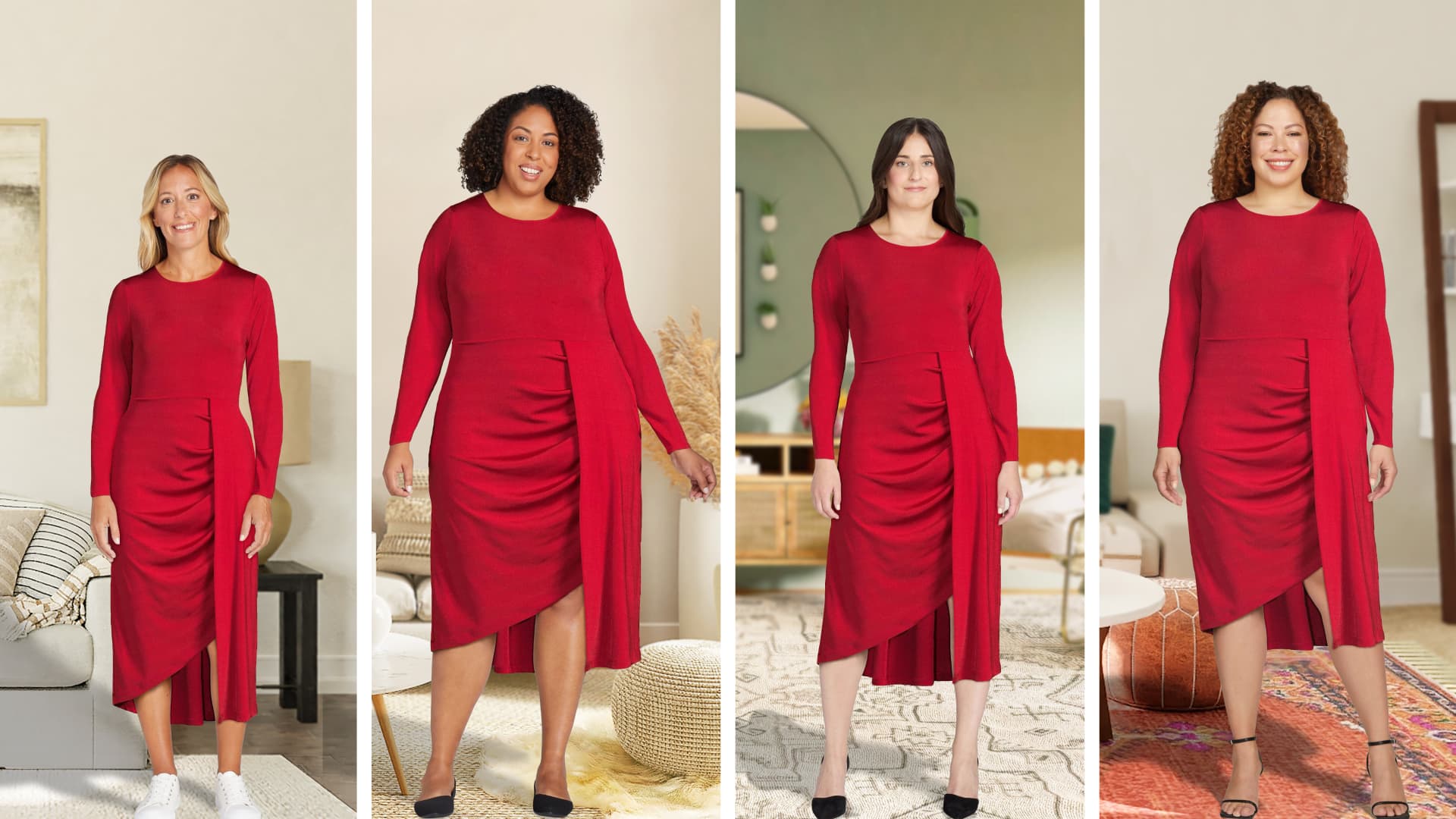Walmart unveils virtual fitting room to push shoppers to buy more clothes

As some shoppers reduce their spending on clothes, Walmart is rolling out a new tool that it hopes will nudge them toward clicking the “buy” button.
Starting this week, customers can use a virtual try-on tool to see how a shirt or another clothing item would look on their own bodies. It is the latest feature the company has added to its website because of the acquisition of Zeekit, a virtual fitting room startup.
The retailer launched its first iteration of the tool in March, which allowed shoppers to choose a model that resembles them in body type, skin tone and hair color. It later expanded from 50 to 120 models. Other retailers have experimented with virtual try-on, too, including Amazon, which has a tool that uses augmented reality to allow shoppers to see how a shoe would look on their feet.
The newest feature for Walmart, “Be Your Own Model,” uses algorithms and machine learning technology that was originally used to develop more accurate topographic maps. Shoppers can use it to virtually try on more than 270,000 items across Walmart’s private brands, select items from national brands, such as Champion, Levi’s and Hanes and some sold on its third-party marketplace.
Customers can choose either option, using their own image or a model who is similar. With the personalized tool, the website uses a scan of a person’s body to provide a more realistic sense of how a fabric drapes, a color looks or where a sleeve or hem hits — without stepping inside of a store.
Walmart is unveiling the new tool at a time when selling new outfits has gotten tougher. As inflation drives up prices of food, rent and more, consumers have begun to make decisions on where to cut back. The big-box retailer joined a growing list of companies, including Target and Best Buy, which slashed their full-year profit outlook as people buy less discretionary merchandise. Walmart now expects adjusted earnings per share to decline between 9% and 11% for the full year.
For the discounter, however, budget-consciousness could come with a potential silver lining. The company raised its sales forecast in July because it was getting a lift from shoppers seeking low-priced groceries and essentials even as they buy fewer high-margin items. It is also drawing more customers with annual household incomes of $100,000 or more, the company said on its earnings call in August.
Denise Incandela, the executive vice president of apparel and private brands at Walmart U.S., said she wants to encourage more of those customers to fill their closets at Walmart, too.
One way to do that is virtual try-on, which makes shopping for clothes more fun and easy, while also taking out some of the guesswork, she said.
That’s also why Walmart has expanded beyond basics like socks and tees into more fashion-forward merchandise with higher price tags. It has a growing collection of private brands, including Sofia Jeans, developed with actress Sofia Vergara; Free Assembly, a men’s and women’s clothing brand designed by the former chief creative officer at Bonobos; and Love & Sports, an activewear brand created with fashion designer Michelle Smith and SoulCycle instructor Stacey Griffith. Its website carries more well-recognized national brands, too, like fitness footwear and apparel maker Reebok and kidswear brand Justice.
Walmart has largely launched those elevated brands on its website and then added some of that merchandise to select stores. Its website drives higher average selling prices for apparel items than stores, Incandela said, so the retailer wants to make sure shoppers have fewer reasons to abandon items in their virtual shopping carts — such as struggling to pick a color or debating how a dress might fit.
So far, she said, Walmart has seen a lift from the first version of its virtual fitting room tool, “Choose My Model.” She declined to say the conversion rate for purchases, but said it is higher for online shoppers who use the tool versus ones who do not.
“We’re kind of doubling down based on the consumer insights,” she said.
Now, she said, it’s thinking about where to go next — such as encouraging store shoppers to check out the technology as an alternative to the fitting rooms or making the feature available for men’s and kid’s clothing or eyewear.




